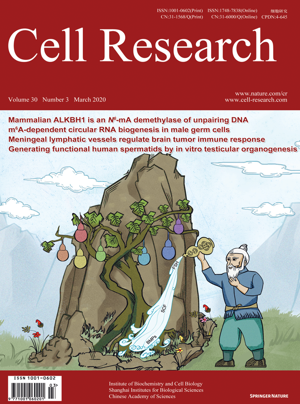
Advanced Search
Submit Manuscript
Advanced Search
Submit Manuscript
Volume 30, No 3, Mar 2020
ISSN: 1001-0602
EISSN: 1748-7838 2018
impact factor 17.848*
(Clarivate Analytics, 2019)
Volume 30 Issue 3, March 2020: 269-271 |
Remdesivir and chloroquine effectively inhibit the recently emerged novel coronavirus (2019-nCoV) in vitro
Manli Wang1, Ruiyuan Cao2, Leike Zhang1, Xinglou Yang1, Jia Liu1,Mingyue Xu1, Zhengli Shi1, Zhihong Hu 1, Wu Zhong2 and Gengfu Xiao 1
1State Key Laboratory of Virology, Wuhan Institute of Virology,Center for Biosafety Mega-Science, Chinese Academy of Sciences,430071 Wuhan, China and 2National Engineering Research Center for the Emergency Drug, Beijing Institute of Pharmacology and Toxicology, 100850 Beijing, ChinaIn December 2019, a novel pneumonia caused by a previously unknown pathogen emerged in Wuhan, a city of 11 million people in central China. The initial cases were linked to exposures in a seafood market in Wuhan.1 As of January 27, 2020, the Chinese authorities reported 2835 confirmed cases in mainland China, including 81 deaths. Additionally, 19 confirmed cases were identified in Hong Kong, Macao and Taiwan, and 39 imported cases were identified in Thailand, Japan, South Korea, United States, Vietnam, Singapore, Nepal, France, Australia and Canada. The pathogen was soon identified as a novel coronavirus (2019-nCoV), which is closely related to sever acute respiratory syndrome CoV (SARS-CoV).2 Currently, there is no specific treatment against the new virus. Therefore, identifying effective antiviral agents to combat the disease is urgently needed.
https://doi.org/10.1038/s41422-020-0282-0